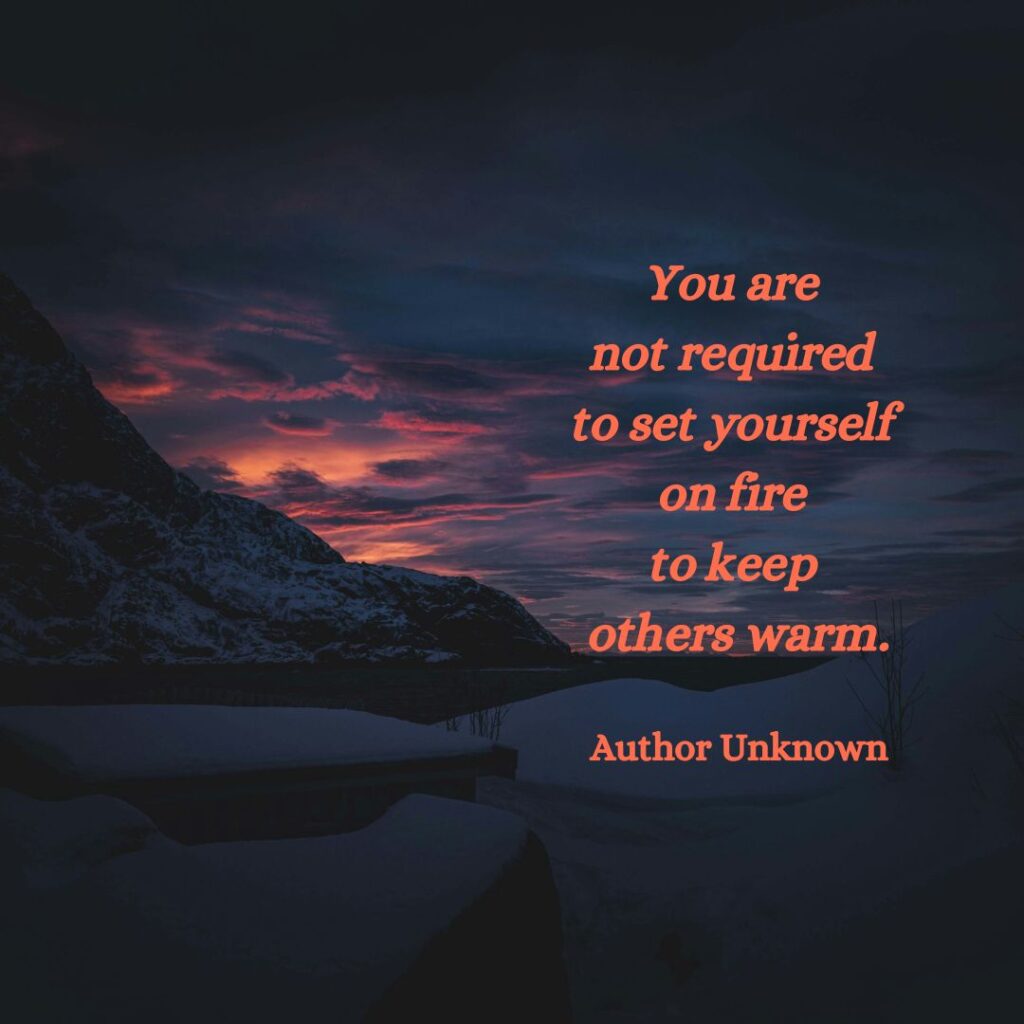“You are not required to set yourself on fire to keep others warm.” Author Unknown
Happy Monday!
I hope you’re well and feeling blessed! Even amid our work and daily rigors, there are always a few moments to stop and appreciate the good things we have and celebrate people who are important to us. Sometimes, we need quiet, reflective time to regroup and recharge. Other times, we need to spend time with someone who appreciates who we are or surround ourselves with people we cherish. It can make the difference between looking forward for the week to end or looking forward to the weekend.
This week, I was reminded of the importance of self-care and setting good boundaries. It struck me that sometimes we get confused about boundaries and how devastating they can be when mishandled. Yes, we need to set healthy parameters to understand where I leave off and you begin. But we also need to learn that boundaries are not to be weaponized so that we don’t have to take accountability for our thoughts, decisions, actions, or the lack thereof.
I recently drove through and prayed over one of the burn areas in SoCA and was struck by the magnitude of the devastation. I also felt an eerie feeling of aloneness that I could not explain. It reminded me of how we can be so quick to judge others’ inability to read our minds yet expect them to show up for, fix, or save us from things of our own making. This aloneness forces us into isolation and deepens our unhealthy mindsets.
I wonder why we think others should be responsible for making us feel some kinda way, when we don’t take responsibility for our own decisions and choices. It caused me to consider the importance of setting healthy boundaries. It also reminded me that not all boundary-setting attempts are healthy. Then, I found the following anonymous quote that resonated with me:

Dr. Henry Cloud, renowned author and psychologist noted that:
“Boundaries define us. They define what is me and what is not me. A boundary shows me where I end and someone else begins, leading me to a sense of ownership. Knowing what I am to own and take responsibility for gives me freedom.”
These are essential concepts to understand and implement. The last sentence, however, is a key, and I encourage us to let it marinate in our minds. It speaks to the importance of not harboring offense when others inappropriately attempt to force their, perhaps misguided, boundaries on us, making their issues our responsibility. We are equally responsible for not picking up that offense and holding others accountable for our hurts or responses. It’s very much a two-way street.
In scripture, we see boundaries being set for our good and the protection of ourselves and others:
“You shall not remove your neighbor’s landmark, which the men of old have set, in your inheritance, which you will inherit in the land that the Lord your God is giving you to possess.” Deuteronomy 19:4 (NKJV)
“And He made from one man every nation of mankind to live on the face of the earth, having determined their appointed times and the boundaries of their lands and territories.” Acts 17:26 (AMP)
The first verse above clearly states that we must respect others’ boundaries to manage our own. In the second verse, we see that everyone has parameters, including timing. We must be mindful of both ideals and manage our expectations accordingly.
In other words, by being responsible for respecting others’ boundaries and creating our own effective limits, we gain the freedom to interact with one another kindly and feel comfortable in those interactions. We are not required to:
~ set ourselves on fire ~ assume responsibility for others’ reactions or take extraordinary measures to ensure there aren’t any negative responses, in order
~ to keep others warm ~ take on their burdens so they can be comfortable.
This week, let’s concentrate on where we see our healthy boundaries, where we respect others’ boundaries, and how we’ve unwittingly weaponized boundaries or allowed others to use them against us. At the very least, we’ll have a chance to review our posture on situations and people and may actualize new understandings of ourselves and others. The exercise may even promote coming together for critical, restorative conversations. And that would be a most welcomed outcome!
Be Well & Be Blessed!
Lucinda
Comments by lucinda